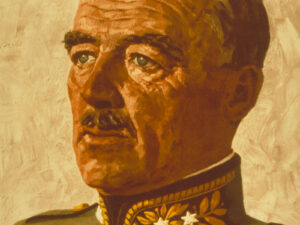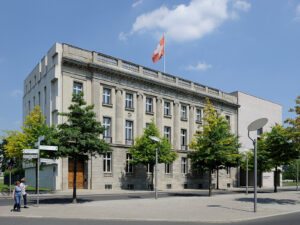
The Swiss Embassy in Berlin – symbol of continuity
Right next door to the Federal Chancellery, the Swiss Embassy today has a prominent location in Berlin’s Spreebogen, the bend in the River Spree. The red flag with a white cross is hard to miss in Berlin’s government district. Thanks to good luck, the historic Stadtpalais bought by Switzerland in 1919 hasn’t burned down, been demolished or sold on in the last 100 years. An enduring symbol of Swiss continuity, the building has had a very eventful life.
Strokes of luck and staying power during the war years
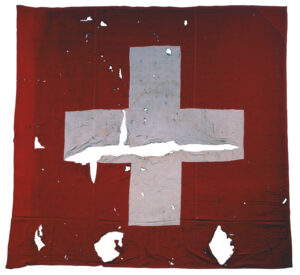
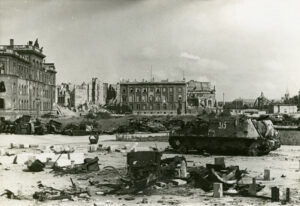
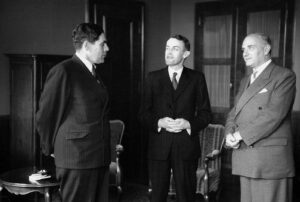
Repatriation delegation assists Swiss citizens who wished to return home from the GDR
Cold War on the doorstep: construction of the Berlin Wall in 1961
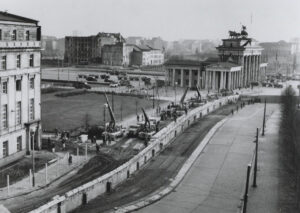
Policy of détente in the 1970s: the Swiss Embassy in East Berlin
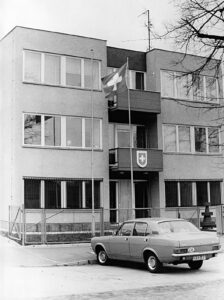
An embassy chef in the clutches of the Stasi
However, the tensions resulting from the division of Germany remained palpable. Peter Gross from Switzerland, aged just 24 at the time, felt the full force of these tensions. He was working in the Residence of the Swiss Embassy in East Berlin as a chef for Hans Miesch, Switzerland’s first ambassador to the GDR. As an Embassy employee, Gross had a car with the diplomatic license plate “CY” for the technical personnel and was able to cross the border without being inspected. To give his East Berlin girlfriend a special evening, he hid her in the boot of his Mini and took her out in West Berlin. This went well a number of times. On 1 February 1975, however, staff of the Ministry for State Security stopped him at the border checkpoint. The couple was arrested for multiple illegal border crossings and alleged aiding and abetting in Republikflucht, desertion from the Republic.
Gross had been betrayed to the secret police (Stasi) and received five years’ imprisonment, while his girlfriend was given four and a half, in the Stasi’s dreaded Bautzen II special detention centre. Both served more than three years before they were released. Usually, convicted Swiss escape agents were discreetly deported to Switzerland after the end of their trial. Gross and his girlfriend, however, became the plaything of the highest echelons of government. The GDR wanted to use the pair as a bargaining chip for the Wolfin agents. The Wolfins, a married couple, had spent several years spying for the Stasi in Switzerland, and had been exposed and arrested in 1973.
After the Wolfins were convicted in June 1975, the GDR authorities offered to exchange the Swiss chef Gross for them, among others. However, Switzerland took the view that the cases were not comparable. Only when the spies had served part of their sentence did Switzerland consider it acceptable to exchange the prisoners. And so Gross and his girlfriend were freed early in 1978 and released into West Germany. They later married in Switzerland. The GDR rulings against them were set aside after German reunification.



